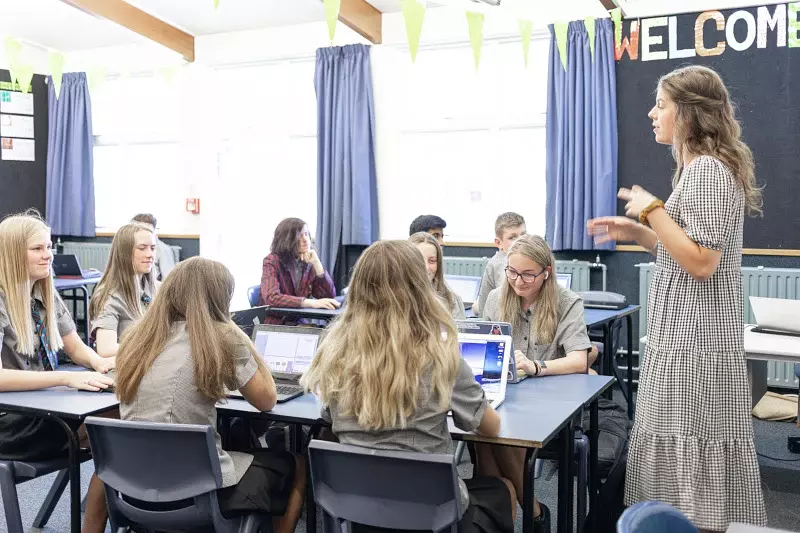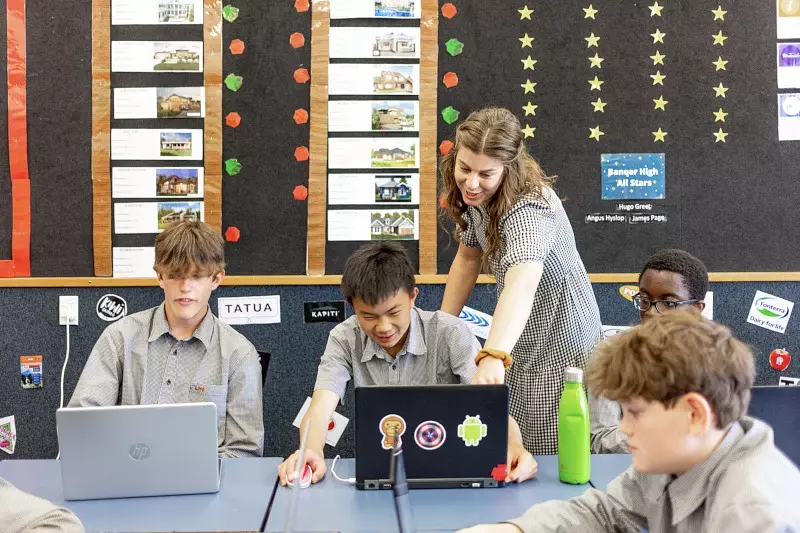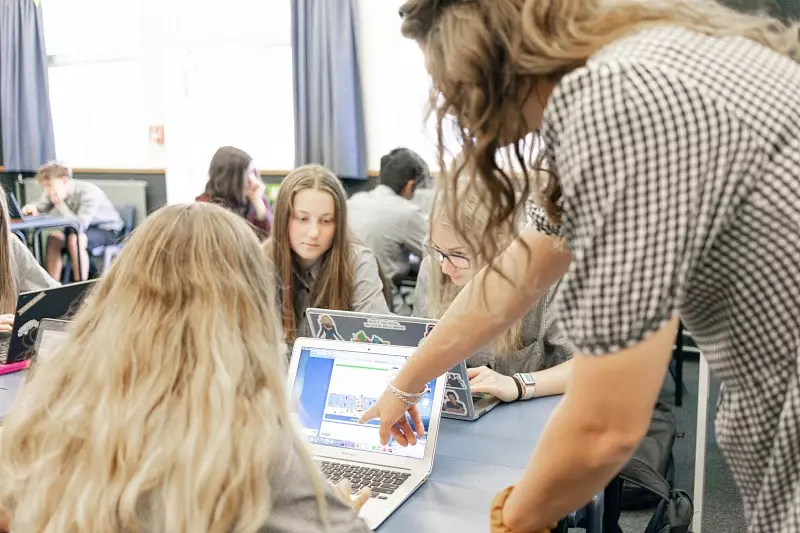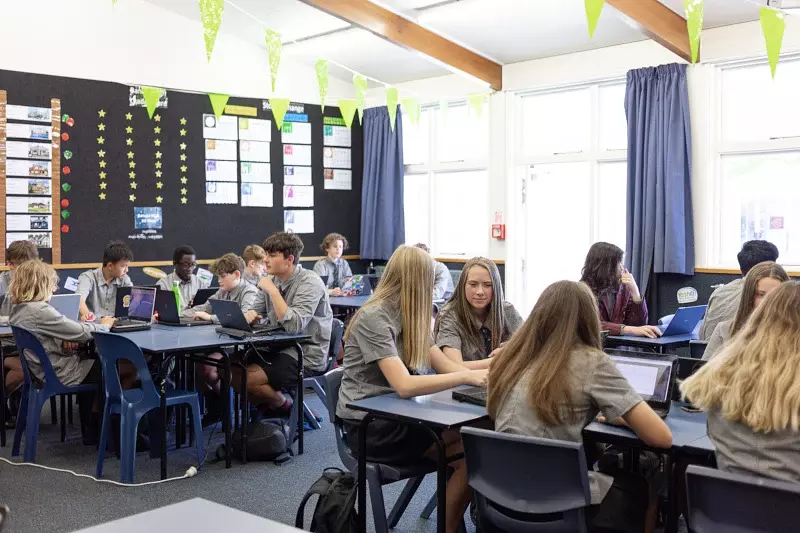Lincoln High School is a future-focussed, innovative secondary school with approximately 1,400 students. Having recently split their school year into two semesters, the Commerce Department has introduced a Year 10 Financial Literacy course sitting alongside their Business Studies course. Banqer High provides the backbone of this new Financial Literacy course, delivering the majority of content during the first 10 weeks.

Acknowledging the importance of Financial Literacy
Lincoln High School has recently placed an additional importance on financial literacy through the introduction of their new course. Prior to the course, the term “financial literacy” was a foreign concept to many students, although top of mind for parents. Financial Literacy teacher, Kate Gilchrist, had feedback from a lot of parents that they want their kids to learn about financial literacy given the real life skills it instills. “Financial literacy has definitely become a bit of a buzz word with parents”, Kate explains.
With clear demand to introduce Financial Literacy in a formal capacity, it was first offered to students in 2020. In its first year approximately 80 students (three classes worth) elected to take the course, which has proven a hit, with students appreciating the practical real life skills that it introduces. As a result the number of Financial Literacy classes for 2021 is anticipated to grow to five, matching the popularity of Business Studies after just one year.
Integrating Banqer High
Creating a new course and introducing new technology can be daunting, but doesn’t need to be difficult. Kate found the Banqer High platform “pretty straightforward”. “One of the team at Banqer ran us through the whole platform, I created a class and added a my colleagues, enabling all of the modules to understand how they all worked, before learning the rest with my students as we went”.
The course structure sees students spending their three hours together each week for the first 10 weeks of the course exploring the financial concepts introduced via the platform. Kate initially introduces students to these concepts via a range of offline activities, pulling from the Banqer High lesson plans and the curriculum content she’s created. Once the class has worked through these activities, the relevant “Expansion” in the platform is enabled by Kate, reinforcing the concepts Kate’s introduced via an introductory quiz, before applying the concepts in a practical sense.
The Banqer High online experience is based around students moving out of home for the first time, and towards financial independence. A range of financial concepts are explored and experienced as students consider a range of careers paths, earn fictitious wages, move into flats, invest in fictitious KiwiSaver funds and shares on the Banqer High Stock Exchange (“BHX”), consider risk, managing their budget and more. Kate reinforces all of these concepts, and further brings the simulation to life, by dedicating the back wall of her classroom to Banqer High. Students’ chosen career paths are displayed, along with their flat groups, the different companies that they can invest in via the BHX, which students are on the property ladder, and the different Banqer High leaderboards.

Investing for Educational Returns
Individual student engagement and enthusiasm levels differ from Expansion to Expansion, however there’s generally unanimous excitement about the introduction of the Stock Exchange Expansion, and the potential for students to buy and sell shares.
Prior to the BHX being introduced, Kate explains that the majority of students didn’t know about the stock exchange, “some of them have heard of shares, generally hearing about them from other students in their year who took the Financial Literacy course in the prior semester, but they can’t explain what shares were and how they worked”.
They were blown away by the price of shares going up and down, and learning about what causes this. That even the actions of the CEO in their private life can cause the value of shares to fluctuate
Alongside monitoring fluctuations on the BHX, students enjoyed applying their newfound understanding to the real markets, exploring what had happened in real life to cause fluctuations in share values. Kate reinforces this in introducing the concept of shares to her students by allocating each of them a company and having them track the companies stock price over time determining what caused its movements.

James and Angus, who sit atop of the BHX leaderboard in Kate's class, attribute their success to staying engaged with the market. Before investing they both take the time in Banqer High to explore a company's performance over time, especially noting the volatility of a company's stock price. This led to both students’ first investment being in Nu Media, the fictitious technology and social media service provider. This investment paid off handsomely for Angus and James who earnt a sizable capital gain when they sold their holding after receiving a platform news notification that Nu Media had a new competitor, Hole Punch, who had made a reported early strong performance.
For James and Angus the other biggest revelations from the BHX was earning dividends and understanding risk. Prior to Banqer High James knew that a stock’s value had the potential to grow over time, but didn’t know some stocks also provided regular income via dividends. They’ve also developed an understanding of the risks associated with stocks, appreciating that sometimes it’s a matter of taking one step back for every three steps forward. Angus believes that some of his classmates didn’t appreciate this when they started and put too much money in the stock exchange. But as he notes, that’s what they enjoy about Banqer, “we’re able to make mistakes without them having real life costs”.

Making an Impact
Given the practical nature of the course, the new Financial Literacy class has proven to be one of Kate's favourite classes to teach in 2020. She feels like she’s making a real impact as the course is “preparing them for later on in life”.
Banqer High allows her “to teach them life skills in a fun way, rather than me droning on about the likes of budgeting”. Kate also appreciated the experiential nature meaning, “They make mistakes now, rather than in real life”.
This impact isn’t lost on Angus either, he thinks it’s something all students should learn about, not just a class they have the opportunity to elect into “it’s such a handy class, it should really be compulsory because it’s such important stuff that’s very useful in life “. In the meantime, Angus has a couple of tips for his schoolmates who elect to take the course next year; get into the BHX, and make sure you get contents insurance. Afterall, the latter’s cost him his number one position on the net wealth leaderboard to James.
